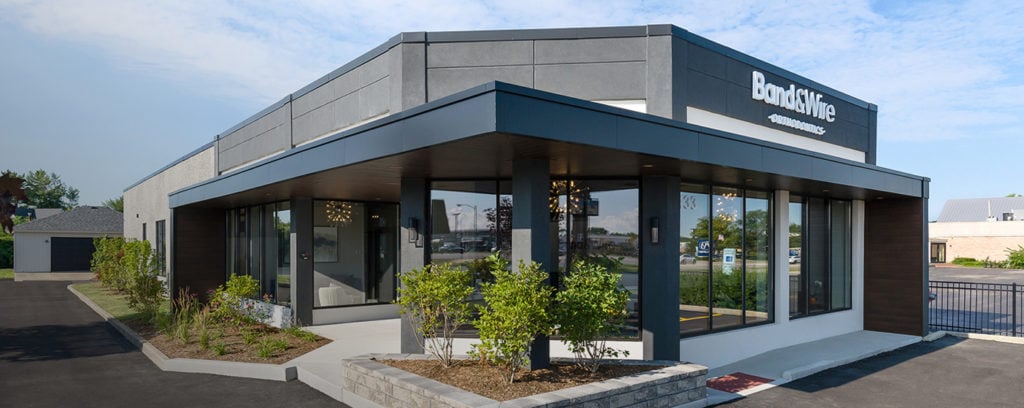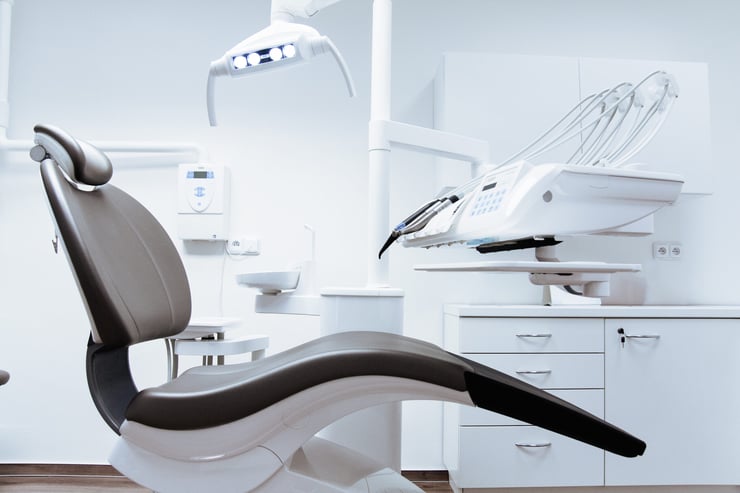Buying or Leasing Your Practice Real Estate
THE FINANCIAL PROS AND CONS FOR DENTAL PRACTICE OWNERS
Whether you lease or purchase your office space, it represents a major financial investment. The average cost of rent was anywhere from 3-6% of collections depending on the size of the practice.
When you are searching for new office space, or just evaluating your current one, it can sometimes be difficult to decide between leasing and buying. There are pros and cons to each option, and what’s best for your business is largely dependent on your needs and expectations for the future.
“Either way, you are going to pay for the real estate—like it or not. Ownership gives you the opportunity to pay for your own equity versus helping build someone else’s,” CPA and Financial Planner Angie Svitak says.
When it’s your primary location, Angie says it almost always makes the most sense to own if you can. When you lease, you lose control over things like the rental rate and terms of the lease. Owning can also offer unique opportunities for cash flow, should you be able to rent out some of the space to other tenants.
Ownership, however, is not all roses and daisies. As an owner, you are responsible for structural costs (think new roof or HVAC system) that could require substantial cash outflow. Secondary or satellite locations and younger practices in the growth phases are also good candidates for leasing. Leasing is a lower-risk way to spend a few years building up patient flow or saving for a down payment.
THE TYPE OF BUILDING MATTERS
Cash flow is a very important part of the equation, especially when it comes to considering the type of building to own. When you buy an existing building, most banks only finance 80% and require a 20% down payment. Depending on the location and market, this can be a substantial amount of money.
Ground-up construction typically offers 100% financing, but the interest rate will be more expensive and will likely come with a SBA (Small Business Administration) fee in order to obtain this government backed loan.
There are a lot of options out there for financing business structures. Banks and other lenders are getting creative, especially for building ground up. If you are in a partnership, owning the building together in a building LLC is an opportunity to share the financial burden.
ADVANTAGES TO OWNING
- Low financing costs for existing buildings. Interest rates are at a historic low, allowing you to build equity rather than paying a landlord.
- Fixed overhead. Owning your premises means you know what your future costs will be and won’t be surprised by a dramatic spike in lease prices after the current lease contract is up.
- Since a dental practice uses specialty equipment and fixtures that are difficult and expensive to move, ownership ensures you only have to make renovations on your own schedule.
- Premises owned by the business are an asset that can be used as collateral for debt or equity financing should it be needed.
- Potential for appreciation in value or additional revenue. If you are fortunate enough to purchase the building in an upcoming area or the bottom of a real estate cycle, the property may increase in value over time. Ownership also brings the opportunity to sublet for additional revenue should you have extra space.
- Tax advantageous. There are definite perks to ownership when it comes time to file your taxes. Things like depreciation and the interest expense on your loan are all deductible. A cost segregation study can also be performed to break out the cost of the building into useful lives by category—which allows you to recognize depreciation more quickly. Angie suggests her clients explore this option to see if the cost is worth the benefit.
DISADVANTAGES TO OWNING
- Tying up capital. If your practice is in a startup or growth phase, you may prefer liquidity rather than buying commercial space.
- Cost savings may be negligible. When leasing, the costs of property taxes, maintenance and repairs, insurance and other expenses are all included in the lease agreement. As an owner, these would be your responsibility.
- Possible decline in property values. Just as there is potential for appreciation, there is risk for depreciation in values. Changing demographics, local tax increases or deteriorating business conditions all can make selling your property difficult.
THE SHORT ANSWER
“Long story short—there is no blanket right answer. To make the right choice, have a professional run the numbers to ensure you can afford it. They will look at the mechanics of cash flow, depreciation and interest expense to make sure it’s a financially advantageous choice for the business and the owner,” says Angie.
Still have questions on your personal scenario? Get a dental CPA on your side to answer all the tough financial questions related to your practice and personal needs. Contact a member of our team below and get the peace of mind of never having to make an uninformed decision .



